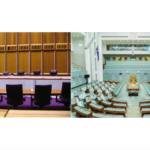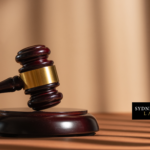Proposed Changes to Racial Discrimination Laws

The federal government has proposed a number of changes to the Racial Discrimination Act. One of the draft changes, the amendment of section 18C of the Act, has been the subject of much debate recently. Some sections of the community fear it will lead to heightened racial tensions, while others believe the changes will be a victory for free speech.
The current Act
As it stands now, Section 18C deals with the prohibition of offensive behaviour, and makes offending, insulting, humiliating and intimidating others on the basis of race, colour or national or ethnic origin unlawful.
It is not actually considered a crime to breach the current Act. If you are the subject of racial vilification, complaints can be made regarding the conduct to the relevant bodies such as the Human Rights Commission, or you can get advice from a lawyer, but police can’t lay charges. The only court action you can take is mounting a civil case.
What the changes will mean
Under Attorney-General George Brandis’ proposed changes, section 18C will be amended, removing references to offending, insulting or humiliating, and making it unlawful only to vilify or intimidate a person on the basis of race, colour or ethnicity. “Intimidate” will be defined narrowly by the Act as causing fear of physical harm. “Vilify” will be defined as inciting racial hatred, rather than its usual wide meaning of belittling or denigrating someone.
In addition, the changes will include a catch-all exemption to any type of racially vilifying behaviour if it is for the purposes of public discussion and debate. The public debate exemption is being broadened to include “words, sounds, images or writing spoken, broadcast, published or otherwise communicated in the course of participating in the public discussion of any political, social, cultural, religious, artistic, academic or scientific matter.”
In proposing the changes, Senator Brandis said the words slated for removal under the draft amendment, such as insulting or humiliating, describe what can be called “hurt feelings.” “It is not, in the government’s view, the role of the state to ban conduct merely because it might hurt the feelings of others,” he said.
What prompted the draft changes?
The changes were promised by the coalition before the last election, and were prompted by the case of media commentator Andrew Bolt. Bolt was deemed to have breached racial discrimination laws in two articles he wrote in 2009 about light skinned people identifying as Aboriginal. Bolt was sued over the articles, which the complainants alleged implied light skinned people who identified as Aboriginal did so for personal gain. Bolt’s lawyer argued the views expressed were genuine, and on a matter of public interest.
The complaint was upheld, however, and Bolt said at the time the judgement was a “a terrible day for free speech in this country.”
Arguments in support of the change
Those arguing in support of the changes, including the Institute of Public Affairs, believe that the current law impinges on the right to freedom of speech. Supporters of the amendments argue that the section, when first enacted, went too far in defining what behaviour is offensive and unlawful. That is, that to prevent offensive, insulting or humiliating statements is beyond the scope of racial vilification laws. This impinges on freedom of speech, and people should not have to be constrained in what they debate when it comes to matters of public interest.
Arguments against the changes
Many sectors of the community, including Australia’s Indigenous leaders and Jewish, Arab, Chinese, Greek, Lebanese and Muslim ethnic groups, oppose this change on the basis it will result in the weakening of protections against racial vilification and the increase of racial tension within the community.
Even if the changes don’t open the floodgates to offensive behaviour, leaders of many ethnic communities take the view that any type of racially offensive, humiliating and insulting behaviour should be constrained, even if it is at some cost to our freedom of speech.
The power lies in us
Laws are enacted to protect community and moral standards. The proposed changes may allow what was once unlawful behaviour. Is that an accurate reflection of our community standards today? If nothing else, these proposed changes have had one great benefit – they have enlivened discussion about a moral standard. Ultimately, upholding that moral standard perhaps lies not in the words of the legislation, but in how we behave as a community.
The proposed changes have been available for public comment, and will now go back to the government for consideration.






